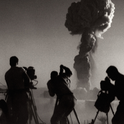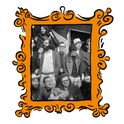Football used to be the game of the English working-class. While many of the civic and political institutions of working-class life in this country have succumbed to the scourges of deindustrialisation and globalisation, football flourishes in the era of footloose multinational capital. Or at least the “new football economy” does.
Ever since the dawn of professionalism in the north of England in the late 19th century, football clubs have been run as businesses. But, as David Goldblatt argues in his new book, since the creation of the Premier League in 1992, the idea that “money shapes the game” has become its “defining feature,” as the butchers and car salesmen who used to run English clubs have been replaced by foreign oligarchs and oil-rich investors.
Goldblatt’s history of the “meaning and making of English football” is wide ranging, dealing with gender, race and national identity as well as economics—but it is as an anatomy of the football industry that The Game of Our Lives is most interesting. This is terrain that has been explored by other writers in recent years—David Conn, Stefan Szymanski and Simon Kuper come to mind—but what makes Goldblatt’s book distinctive is a question that he asks, but never quite answers. How is it that English football, whose economy has become an “exemplar of a globalised and deregulated model of capitalism,” is still home, despite everything, to “invented rituals and solidarities” that belong to another age?
Read more books in brief
The Quantum Moment by Robert P Crease & Alfred ScharffFields of Blood: Religion and the History of Violence by Karen ArmstrongThe Dog by Joseph O'Neill
Ever since the dawn of professionalism in the north of England in the late 19th century, football clubs have been run as businesses. But, as David Goldblatt argues in his new book, since the creation of the Premier League in 1992, the idea that “money shapes the game” has become its “defining feature,” as the butchers and car salesmen who used to run English clubs have been replaced by foreign oligarchs and oil-rich investors.
Goldblatt’s history of the “meaning and making of English football” is wide ranging, dealing with gender, race and national identity as well as economics—but it is as an anatomy of the football industry that The Game of Our Lives is most interesting. This is terrain that has been explored by other writers in recent years—David Conn, Stefan Szymanski and Simon Kuper come to mind—but what makes Goldblatt’s book distinctive is a question that he asks, but never quite answers. How is it that English football, whose economy has become an “exemplar of a globalised and deregulated model of capitalism,” is still home, despite everything, to “invented rituals and solidarities” that belong to another age?
Read more books in brief
The Quantum Moment by Robert P Crease & Alfred ScharffFields of Blood: Religion and the History of Violence by Karen ArmstrongThe Dog by Joseph O'Neill












